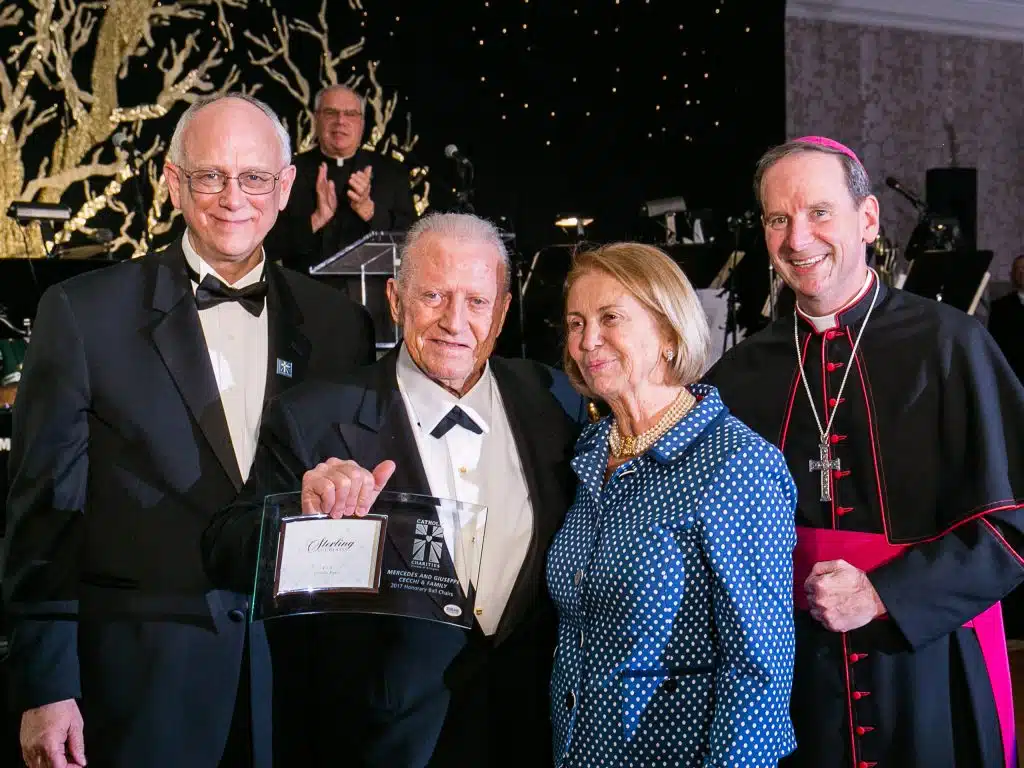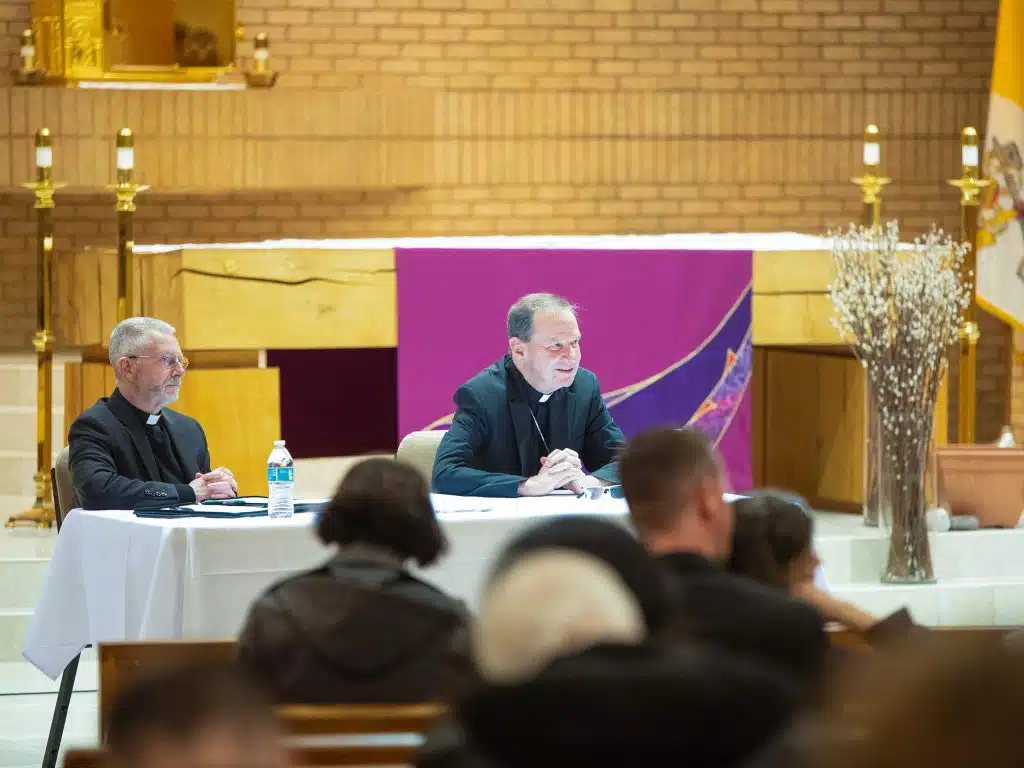In a 2014 address to engaged couples, Pope Francis said many couples are more concerned with the “exterior details” of their wedding planning such as the banquet, photographs, clothes and flowers. Those, he said, are “important for a celebration, but only if they point to the real reason for your joy: the Lord’s blessing on your love.”
Weddings are big deals, no doubt about it. But as the pope points out, it is easy for couples to lose sight of the bigger picture — the marriage — if their focus is on a single day’s celebration.
That’s where church-sponsored programs come in, to provide perspective.
“Our main challenge, as a church, is addressing a lack of understanding in what marriage is,” said Mimi Streett, director of family life ministry for the Diocese of Oakland, California.
That is why marriage ministry leaders at the diocesan and parish level emphasize the need for solid, faith-based preparation process that can include:
— Engaged Encounter weekends to focus on relationships.
— Single-day or multiple-evening classes that address practical issues.
— Ongoing mentor connections with married couples who can share real-life experiences.
Each of these preparation tools emphasizes marriage as a sacrament in the Catholic Church, something quite different from what engaged couples may glean from watching reality TV shows or reading glamour magazines.
“There is so much awful promotion on some of these TV shows where they make the bride out to be the star of an event, rather than a partner in a marriage,” said Mary Fay, associate director of marriage and family life ministry in the Diocese of Albany, N.Y. “That’s why faith-based preparation is so important; it is a moment of evangelization for these couples.”
In the Albany Diocese, about 500 couples a year go through the diocesan program that includes daylong sessions which address sacraments, spirituality, family of origin, communication and conflict resolution skills, finance management, career and family balance, couple’s prayer, and the benefits of being part of a Christian community.
“A significant number are unchurched or inactive in the faith,” added Fay. “So they need more serious preparation.”
A married couple is present at each session to talk about and answer questions on marriage. “By seeing a positive example, it gives the engaged couples a sense of marriage as a shared life, and that’s something they don’t get from the media’s depictions of marriage,” said Fay. “And by the end of session, they are more attuned to marriage as sacrament. They see that they’re not just creating a one-time event.”
In the Diocese of Fort Worth, Texas, a mandatory three-stage preparation process includes a course in natural family planning, a retreat and an on-going connection with a sponsor couple.
The process is a means to “lay out what the church believes about the sacramental nature of marriage, and we help people discern what they believe and why, so they can be better prepared to further explore their relationship,” said Jared Zimmerer, director of adult catechesis and evangelization at St. Francis of Assisi Church in Grapevine, Texas.
“The preparation process allows couples the chance to find out where they may have different ideas — perhaps on how to raise children, or handle finances — so they can better understand and address those issues,” Zimmerer added.
As often as possible, priests or women religious are part of the presenting teams, “and it can make a huge difference,” said Streett. “At our weekend retreats, we offer engaged couples the sacrament of reconciliation, and many take advantage. And when they write to us afterward and tell us they’ve stopped cohabiting, that’s big.”
The tone of the retreat is “serious yet joyful, with caring and respect,” she said. “Sure, some couples are there to get it checked off, like a homework assignment, but we also see some beautiful things happen. A lot of couples tell us their communication is better, they take this commitment more seriously, many take steps to convert or return to church.”
Still, even the best, most faith-centered preparation may not drastically impact a couple’s concerns over which flowers should decorate the church, or what colors the bridal party should wear, or what they should serve at their reception. Or, whether to incorporate “something cool they saw on TV or Pinterest” into their wedding liturgy.
“It depends on how seriously couples take their faith,” Zimmerer said, adding that in his experience couples who “go through the preparation start to attend Mass and confession more regularly, and start to accept that marriage is what the church wants” not what they want.
“That is a grace of the Holy Spirit,” he added.


